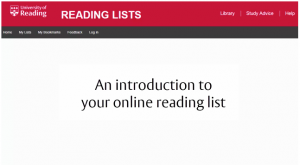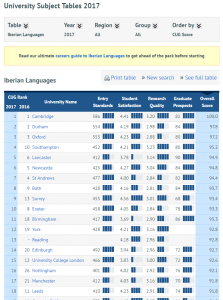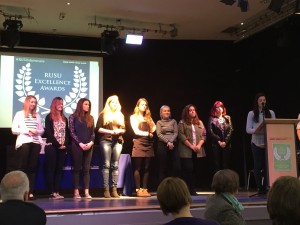Final year student Chloe takes us though the many places to go for guidance at Reading and assures us that ‘everyone is in the same boat’.
Beginning university is a big milestone. A change in studies and often a change in scenery, university is the start of a new adventure and marks, for many, the first experience of moving out of home. In the coming months you will start to contemplate all of these changes: writing lists of what will make the cut in your packing for university; looking at your reading list; figuring out how to do things that you may not have had to do before (like your own washing!). When the time comes, the move to university will surely be a momentous occasion, and awaiting you alongside your studies are friends and experiences that you will treasure long after your university time.
However, understandably, such a change can seem daunting. Everyone will be telling you that ‘everyone’s in the same boat’ – I’m sure you’ve already heard that a few times! – but it actually is true. When you arrive to university, whether that be your move-in day at Halls, or your first lecture, you will see that all of the other students have exactly the same feelings of apprehension, excitement and nerves. The friends you make in your accommodation and/or on your course will most probably be your closest support network for the coming years. Providing a home away from home, the bonds between students are so tight because they become your first port of call when you need a companion for all the new things you are discovering: when you want to go and explore the campus; when you need to watch a favourite film to combat a bit of homesickness. These bonds are important to the transition to university. However, as in any situation, there can be times when things go wrong or something is making your time less enjoyable than it should be. For such times, there are a fantastic range of support services run by the university, to help you in any way that may be required.
 Upon arriving at university you will be assigned a personal tutor, a member of staff within your subject of study. Your personal tutor will be a constant throughout your degree, providing help and support for not only academic issues or concerns you may have, but also with personal issues such as housing, relationships, finance etc. Most tutors are more than happy to talk to you either in person or via email at any point during the academic year, and will be able to refer you or provide necessary advice for the specific problem. During my studies at university I have used both my personal tutor and even tutors from modules I have taken. Members of staff, in my experience, are so friendly and helpful, and having such a great network of tutors and staff to talk to means that there is likely to be at least one person that you feel comfortable talking to.
Upon arriving at university you will be assigned a personal tutor, a member of staff within your subject of study. Your personal tutor will be a constant throughout your degree, providing help and support for not only academic issues or concerns you may have, but also with personal issues such as housing, relationships, finance etc. Most tutors are more than happy to talk to you either in person or via email at any point during the academic year, and will be able to refer you or provide necessary advice for the specific problem. During my studies at university I have used both my personal tutor and even tutors from modules I have taken. Members of staff, in my experience, are so friendly and helpful, and having such a great network of tutors and staff to talk to means that there is likely to be at least one person that you feel comfortable talking to.
Alongside the personal tutor connection, the University runs a Student Wellbeing Service, housed in the Carrington building on campus. The ‘Counselling and wellbeing’ facility operates many services, including: Counselling sessions with trained professionals (can be a one-off session or a series of sessions), Peer supporters (fellow students offering advice), Life Tools talks (resources and advice about living independently, managing time, study advice etc.), Study Advisor ( to help with academic problems). This is a free service available to all registered students, and fully trained counsellors are always on hand to provide guidance and support to students about a range of personal and academic issues. Similar to this, RUSU (Reading University’s Student’s Union) runs events throughout the year to help students deal with stress. ‘RUSU says Relax’ is a scheme precisely for this, and is currently running a ‘Mobile Zoo’ that is on campus during exam period to help students relieve stress.
So always remember, especially in the run up to starting university, that help and support is always on hand at any point, even if you just need a friendly chat and a cup of tea!


 The Professional Track is a unique professional development scheme that is open to all students who do degrees in English Language, English Literature or Modern Languages. Since the scheme’s launch in September 2015, already we have had well over 150 students involved which is simply fantastic! We’ve offered a wide variety of courses, masterclasses and placements with the aim that these additions will turn your career hopes into real plans.
The Professional Track is a unique professional development scheme that is open to all students who do degrees in English Language, English Literature or Modern Languages. Since the scheme’s launch in September 2015, already we have had well over 150 students involved which is simply fantastic! We’ve offered a wide variety of courses, masterclasses and placements with the aim that these additions will turn your career hopes into real plans. The amount of placement opportunities is endless; in the past students have gone to Penguin Publications, the BBC, Disney and even wolf sanctuaries! We’ve also offered course so far in skills such as report writing, marketing and first aid and we are always open to suggestions.
The amount of placement opportunities is endless; in the past students have gone to Penguin Publications, the BBC, Disney and even wolf sanctuaries! We’ve also offered course so far in skills such as report writing, marketing and first aid and we are always open to suggestions.











![20160211_112131 copy[2]](https://blogs.reading.ac.uk/mles/files/2016/02/20160211_112131-copy2.jpg)
![20160211_112537 copy[2]](https://blogs.reading.ac.uk/mles/files/2016/02/20160211_112537-copy2.jpg)